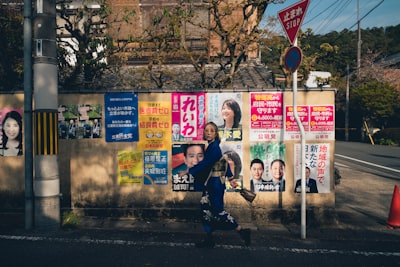Japan’s Immigration Debate: How Nationalism and Labor Shortages Are Shaping Voter Sentiment in 2025
As the 2025 Upper House election approaches, Japan’s immigration policy and the rise of nationalist rhetoric have become central talking points. With Prime Minister Shigeru Ishiba’s controversial comments and the emergence of the anti-foreigner Sanseito party, voters and policymakers are forced to examine Japan’s evolving attitudes toward foreigners, labor needs, and global integration.
Japan’s Approach to Immigration in 2025: Between Economic Need and Cultural Conservatism
Japan faces a critical intersection: a rapidly aging population, chronic labor shortages, and an economy pressured by global forces. Yet, even against this backdrop, national identity and cultural homogeneity remain paramount for many Japanese. The government’s attempts to relax immigration laws are often met with skepticism or outright opposition, fueled by narratives claiming that foreigners threaten social cohesion and national traditions.
Why is Immigration a Hot-Button Issue in Japanese Politics?
- Aging Population & Worker Shortages: Japan’s shrinking workforce heightens the need for foreign labor, particularly in healthcare, construction, and service industries.
- Birth Rates and Population Decline: With one of the world’s lowest birth rates, Japan risks severe economic contraction unless it adapts its workforce strategy.
- Political Pressure: Rising parties like Sanseito leverage anti-foreigner sentiment to gain traction, painting immigration as a threat rather than a solution.
Nationalism on the Rise: Sanseito and the “Japanese First” Movement
The Sanseito party, inspired by global populist movements, has surged in popularity with its "Japanese First" slogan and tough stance on foreigners. By framing immigration as a zero-sum game, they appeal to widespread anxieties about the cost of living, real estate access, and cultural preservation. Social media has turbocharged their reach, with YouTube subscriber numbers eclipsing those of other Japanese parties.
Key Talking Points Used by Nationalist Parties
- Foreigners and Crime: Frequent claims of increased crime linked to immigration, though not always backed by data.
- Real Estate Fears: Concerns about foreigners buying up land and pricing out locals.
- Tourism Backlash: Over-tourism and its effects on local communities are framed as downsides of "open-door" policies.
Policy Impacts: How is Japan Responding?
In response to public backlash and rising nationalist sentiment, mainstream parties like the ruling Liberal Democratic Party (LDP) have adjusted their platforms:
- Promises to crack down on unpaid medical bills and taxes by foreigners.
- Advocating for “zero illegal foreigners” in campaign manifestos.
- Considerations to abolish duty-free shopping for tourists.
This is coupled with proposals to ensure that only foreigners who can assimilate—by learning the “tedious” Japanese language and respecting local customs—are welcomed.
Globalization vs. Isolationism: What’s at Stake?
Japan’s hesitancy toward deeper globalization could have long-term consequences for its economy, innovation ecosystem, and cultural vibrancy. Past periods of isolation have slowed technological and economic growth; the question now is whether Japan can find a path that both preserves its traditions and embraces the necessary dynamism of a globalized workforce.
Comparing Japan’s Debate to Other Countries
The “Japanese First” trend mirrors policies and rhetoric seen in the US (“America First”), Europe (Brexit, immigration clampdowns), and elsewhere. Each context has its own nuances, but the core tension between nationalism and globalization is shared globally.
FAQs About Immigration Policy and National Identity in Japan
Q: Why is Japan hesitant about accepting more immigrants?
A: Concerns about cultural integration, language barriers, and maintaining a sense of homogeneity fuel public resistance.
Q: Are foreign workers essential to Japan’s future?
A: With declining native birthrates and rising labor shortages, many economists argue that foreign workers are crucial for economic sustainability.
Q: How powerful is the anti-foreigner movement politically?
A: While still a minority, parties like Sanseito are forcing mainstream politicians to address the issue head-on and harden their positions.
Conclusion: Can Japan Balance Tradition with a New Era of Globalization?
As anti-foreigner sentiment reshapes the political landscape in Japan, the 2025 Upper House election serves as a bellwether for the nation’s willingness to embrace change. The challenge for leaders like Shigeru Ishiba is to communicate the value of a diverse, open society while addressing legitimate concerns about integration and national identity. The choices made today will have far-reaching implications—not only for Japan’s democracy, economy, and global standing, but also for how the rest of the world navigates similar debates in an era of uncertainty and change.
Related topics:

Comments
No comments yet. Be the first to comment!